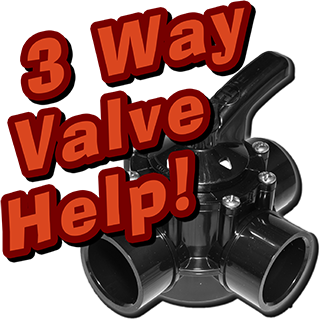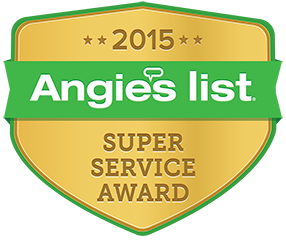Operation Manual - Domestic Hot Water (External Heat Exchanger Type)
Your solar water heating system is fully automatic, requiring no routine maintenance to provide your household with free hot water each sunny day. However, as with all mechanical devices, a small amount of periodic attention to the system operation will provide you with many years of trouble free performance, thus assuring you of reduced energy costs for many years to come.
The temperature of the solar panels is always being monitored by the control unit on your system and is compared to the temperature of the lower portion of the solar storage tank. Whenever the solar panels are at least 10 degrees warmer than the storage tank, the circulating pumps are automatically turned on. One pump circulates a non-toxic heat transfer fluid through the solar panels and a heat exchanger located near the solar storage tank. At the same time this heated fluid is flowing through the heat exchanger the other pump is circulating water from the solar storage tank through the heat exchanger, transferring the heat from the solar panels to the water in the tank. When the solar panels can no longer raise the temperature of the storage tank due to sky conditions (clouds, night-time or low sun angle) the system controller will automatically turn off the circulating pumps.
If your system controller has a manual switch located on the exterior of the control box it should always be set to the automatic position for maximum energy collection. The pressure of the heat transfer fluid should be at least 15 PSI or higher for proper operation. Most systems have a thermometer located on the pipe that returns from the solar collector panels. You should notice that the temperature indicated on this thermometer rises during the day on a sunny day.
If you don't think the unit is operating properly:
- Check that there is power to the unit (power light on).
- Check that the switch (if present) is in the "AUTO" position.
- Is the pumping light on the control unit on?
- Is solar energy available? (No clouds, sun is shining on solar panels between the hours of 10 AM and 2 PM.) If not, check again when the sun is shining on the solar panels.
- Is the pressure of the heat transfer fluid at least 15 PSI or higher?
- Is there an elevated temperature on the return line thermometer?
- Is either circulating pump at a very high temperature but the thermometer on the return line does not indicate an elevated temperature?
If you still think you have a problem then please call for service.
What To Check Monthly
- Pressure of solar heat transfer fluid must be 15 PSI or higher. Check this gauge either in the late evening or early morning.
- System pumping light on during mid-day when the sun is shining.
- Return line temperature is at an elevated temperature when system pumping light is on.
Last updated 11/3/2000
| Attachments | |
|---|---|
| Operations Manual For DHW Systems with External Heat Exchangers (Printable Copy) 0.22 MB | |













